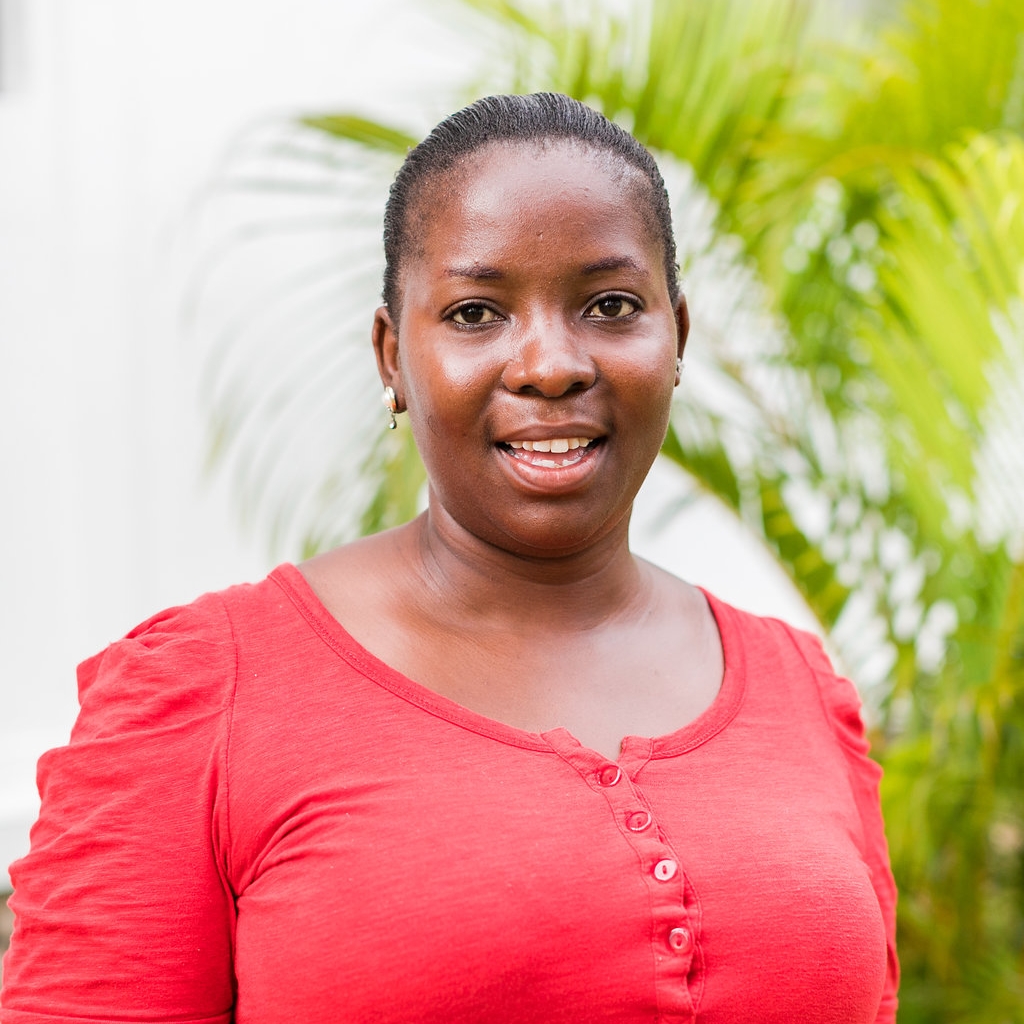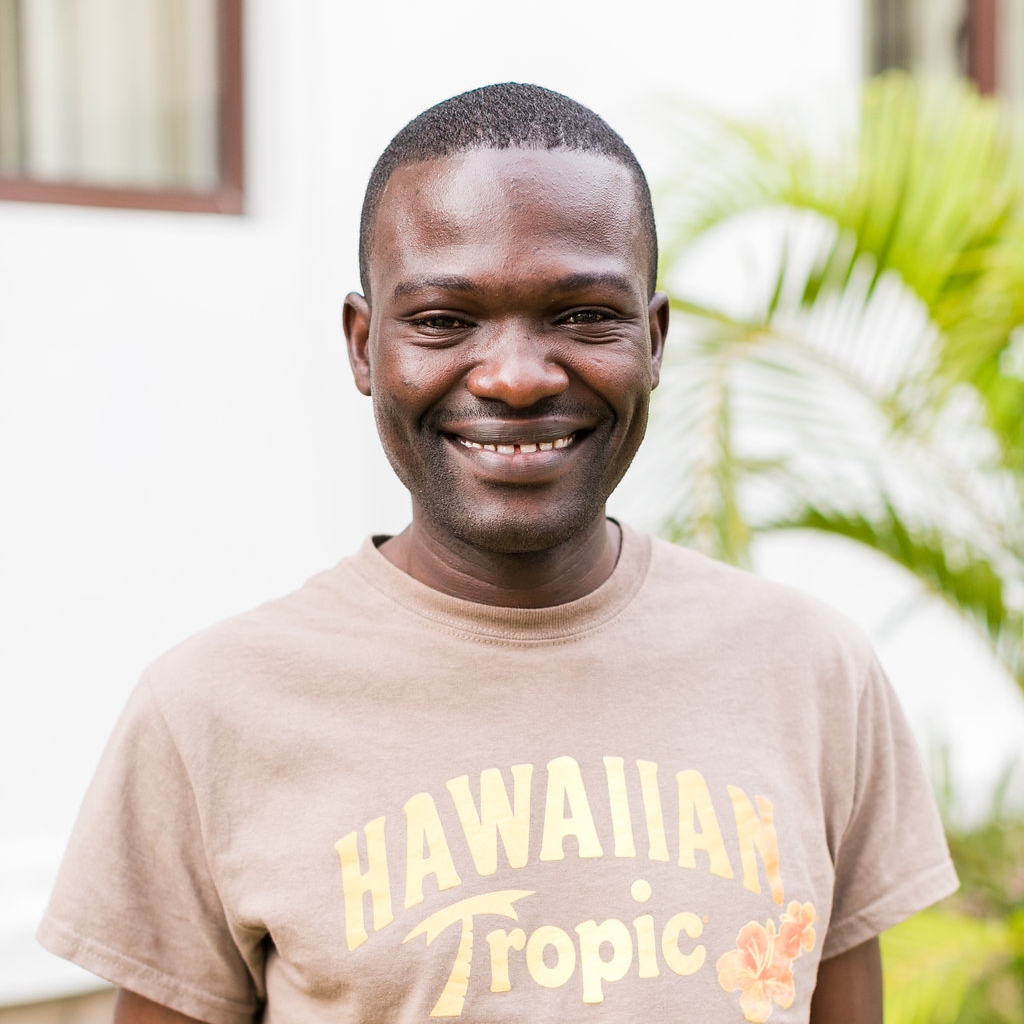community profile
Nuru is a slum community in Kisumu, Kenya. The population density combined with extreme poverty rates in the Nuru community contribute to a high HIV infection rate. This area also has the largest Muslim population in Kisumu. The CARE for AIDS center in Nuru launched in October of 2011 in partnership with Full Gospel Church of Kenya under the leadership of Pastor Joseph Opere.
center staff
Health Counselor: Lillian Lukania
Lillian joined the CARE for AIDS team in 2011. She and her husband, Rodgers, have two daughters and live in the Nuru community.
"I love when I am able to attend to bedridden clients and eventually see them walk again!"
Spiritual Counselor: Dan Nyamondo
Dan joined the CARE for AIDS team in 2011 and had faithfully served over 500 clients as the Spiritual Counselor in Nuru.
"I love serving people and I am proud to invest fully in my community through my work with CFA."
center history
YEAR GRADUATES FAITH-DECISIONS ORPHANS PREVENTED
2011-2012 71 18 227
2012-2013 70 25 181
2013-2014 71 23 211
2014-2015 74 14 294
2015-2016 67 16 217
2016-2017 64 21 224
2017-2018 76 24 244
2018-2019 75 20 202
2019-2020* N/A N/A N/A
2020-2021 TBD TBD TBD
*The cohort in the 2019-2020 class was impacted by delays in the CARE for AIDS program caused by COVID-19 lockdowns and health precautions. To learn more about how we responded to the pandemic, visit this page.
graduate profiles
Judith, 2018 Nuru Graduate:
Judith is a 49-year-old widow with two adult children and one grandchild. She tested positive for HIV in 2006. For many years, Judith was a cook at a primary school. Out of fear of being stigmatized and possibly losing her job, Judith was ashamed of her status. This shame caused her to often not pick up her medicine from the clinic or to not take her medicine every day, especially if she was around other people. Unfortunately, because she didn’t adhere well to her ARV medication, she defaulted, meaning that her body was no longer responding to the ARVs she had been prescribed. Her health started to decline.
Due to her failing health, the school where she works told her to stay home and rest until she becomes well and strong enough to work again. Without a job, she became even more fearful of how long she would live and how she would pay for food and rent. This was her state when she joined the CARE for AIDS program. Her viral load was high, meaning that there was a lot of HIV in her blood. With a high viral load, CD4 cell counts tend to fall and there is a greater risk of becoming ill because of HIV. CARE for AIDS went with her to the clinic where she receives her ARV medication and advocated for her to be switched to new ARV medication. Through the support of the CFA program, she has been taking her new medication daily and with adequate nutritional support and her body is reacting well.
Unfortunately, even though her viral load is decreasing, the CARE for AIDS staff noticed that Judith was rapidly losing weight and that her health was still continuing to decline, rather than improve. They organized for her to receive nutritional flour porridge and beetroots in hopes of helping her to gain weight. However, after many conversations with her about her diet and whether she was experiencing any other symptoms than weight loss, they realized that she was not being able to have a bowel movement for up to 2 weeks at a time. The staff arranged for her to have an appointment at the hospital.
It was determined that a colonoscopy would be necessary to diagnose Judith’s health issues. The hospital in Kisumu, where she lives, only has one doctor who can perform this procedure and therefore charges a very high price. Our staff did research and were able to pay for the transport and travel with her to another city called Kijabe to have the procedure done at a mission’s hospital for less than half the cost of the hospital in Kisumu. During the colonoscopy procedure, the doctor took biopsies because he feared from his preliminary evaluation that she might have colon cancer. Thankfully, the biopsies came back negative and she does not have cancer. She was diagnosed with chronic constipation and prescribed medications to help relieve her. Her constipation was causing her lack of appetite and she has also been prescribed an appetite stimulant to help her regain some of the weight that she’s lost over the last few months.
Judith is incredibly thankful for all the help that CARE for AIDS has given her over the past several months. Having lost her husband a few years back, and having recently been laid off from her job, there would have been no way for her family to save or raise the money necessary to pay for the tests and treatment that she needed. She said she wouldn’t have even stepped into a hospital to seek treatment if it hadn’t been for the help and support of the CARE for AIDS staff and medical endowment fund. She gives praise to God for bringing her to the CARE for AIDS program at exactly the right time.




